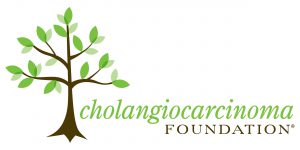For Cholangiocarcinoma, Mutations Matter
"Cholangiocarcinoma has a number of actionable mutations; probably more than any other gastrointestinal cancer. Genomic profiling for this cancer is ‘standard of care’ in all the major cancer centers and should be encouraged for all cancer patients affected by this tough disease.”
- Milind Javle, M.D., MD Anderson
Molecular profiling can provide access to effective treatment options for patients with cholangiocarcinoma (CCA) and should be part of your standard protocol.
Why Order Molecular Profiling for CCA?
"With multiple promising targeted therapies in clinical development for cholangiocarcinoma, tumor molecular profiling can offer patients a chance to participate in clinical trials and access new effective treatments.”
- Lipika Goyal, MD, MGH
Cholangiocarcinoma patients have a dismal prognosis and few treatment options; however, broad sequencing efforts have shown that more than 50% of patients with cholangiocarcinoma have at least one targetable mutation.
This could provide additional personalized treatment options, including access to clinical trials that may give these patients the chance to live well and longer.
Actionable signatures include:
- IDH1 mutations
- FGFR fusions and mutations
- HER2 amplification and mutations
- BRAF mutations
- PIK3CA mutations
- NTRK
- Microsatellite instability
Microsatellite instability, tumor mutational burden, and PD-L1 status may predict response to immunotherapy; about 3% of CCA patients have microsatellite instability and have had positive long-term results with checkpoint inhibitors.
Identification of these signatures in cholangiocarcinoma has stimulated both pharmaceutical and scientific interest in this disease. There are now several hundred trials on ClinicalTrials.gov in which CCA patients are eligible to participate.

"My genomic testing revealed an MLH1 mutation, an indication of microsatellite instability. Thankfully, my oncologist was on the leading edge of immunotherapy and recognized the potential benefit that a checkpoint inhibitor might have in my situation. I started Keytruda and within 4 months I had a complete response. I continued the therapy for 18 months total, and 3 years after starting, I remain cancer free and consider myself cured.”
- Matt Reidy, cholangiocarcinoma survivor
How and When to Profile CCA Patients
Timely profiling of patients with CCA is crucial. Testing soon after the diagnosis of locally advanced or metastatic disease gives patients the opportunity to benefit from the results.
The Cholangiocarcinoma Foundation urges early testing for all patients with cholangiocarcinoma. Oftentimes, tissue from the diagnostic biopsy can be used for molecular profiling, alleviating the need for a second procedure. Anticipate the need for molecular profiling by using a core needle instead of fine needle aspirate, so sufficient tissue can be obtained during the biopsy.
For some patients, repeat profiling upon recurrence or spread may yield new actionable mutations, so consider re-profiling in these cases.
Insurance Coverage for Molecular Profiling
Recognizing the increasing value of molecular profiling in a variety of cancers, more and more, insurance companies are covering this testing, making it more accessible for your patients.
Learn More About Molecular Profiling Options
Perthera has partnered with the Cholangiocarcinoma Foundation to help guide you and your patient through the genetic profiling process.
About Cholangiocarcinoma (CCA)
Cholangiocarcinoma is a rare and aggressive cancer of the bile duct with a median survival of one year.
CCA has two anatomic subtypes:
- Intrahepatic cholangiocarcinoma (ICC) is the second most common primary liver cancer. As an adenocarcinoma, it is hard to distinguish from metastatic disease from other origins. In fact, ICC is the most common cause of adenocarcinoma of unknown primary.
- Extrahepatic cholangiocarcinoma (ECC) includes:
- Perihilar (Hilar) cholangiocarcinoma, also called a Klatskin tumor, the most common type of cholangiocarcinoma, and
- Distal cholangiocarcinoma, which occurs outside the liver after the right and left hepatic bile ducts have joined to form the common bile duct. This type of cancer is found where the common bile duct passes through the pancreas and into the small intestine.
Standard of care for first-line treatment consists of gemcitabine/platinum. Surgery is the only curative option for early-stage disease; unfortunately, most patients present with advanced, unresectable disease.
Learn More About Cholangiocarcinoma & Treatment
"Patients count on their doctors to leave no stone unturned when facing a diagnosis of cholangiocarcinoma. Genomic profiling should be just as important as checking vital signs. In some cases, it could indeed be the difference between life and death.”
- Mitesh J. Borad, MD, Mayo Clinic


